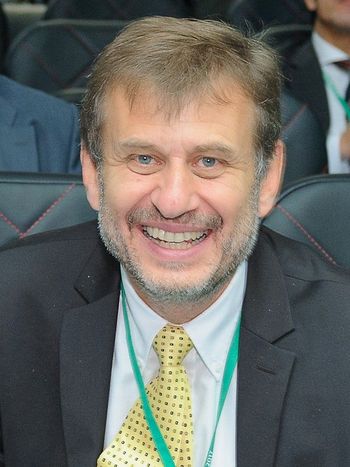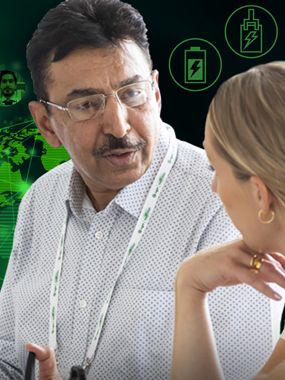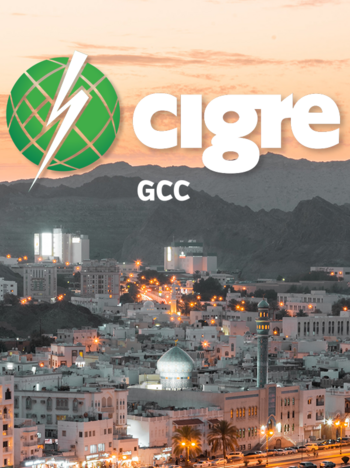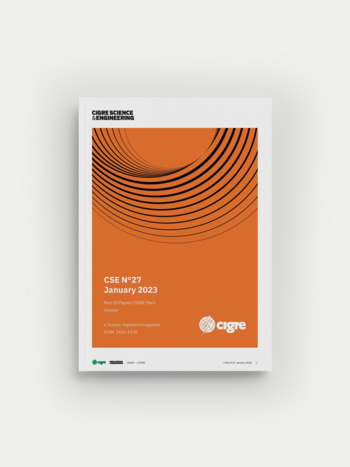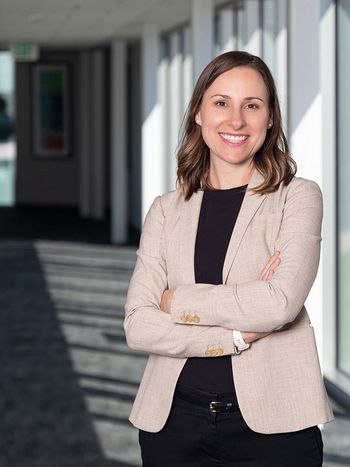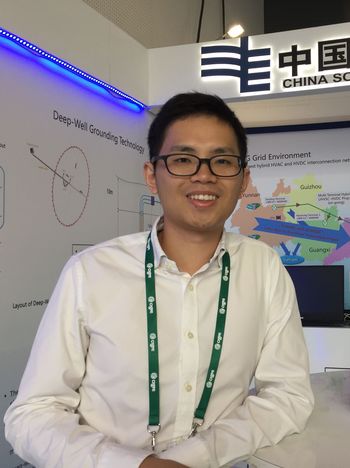GCC Power 2022 Post Show Report
GCC Power is an annual flagship event of CIGRE in the Middle East that is held every year in one of Gulf Cooperation Council countries. GCC Power 2022 - The 18th GCC CIGRE International Conference and along with the 27th Exhibition for Electrical Equipment was held in Riyadh, Saudi Arabia from 14th to 16th November 2022. The three-day conference was attended by 650 professionals and had 64 presentations and 34 poster papers presenting their technical papers across 11 sessions. The exhibition has 27 electrical industrial companies from around the world and attracted 1300 visitors. The GCC Power format has evolved in the direction advocated by CIGRE, with the introduction of the Women in Energy Forum, in addition to the NGN Forum.
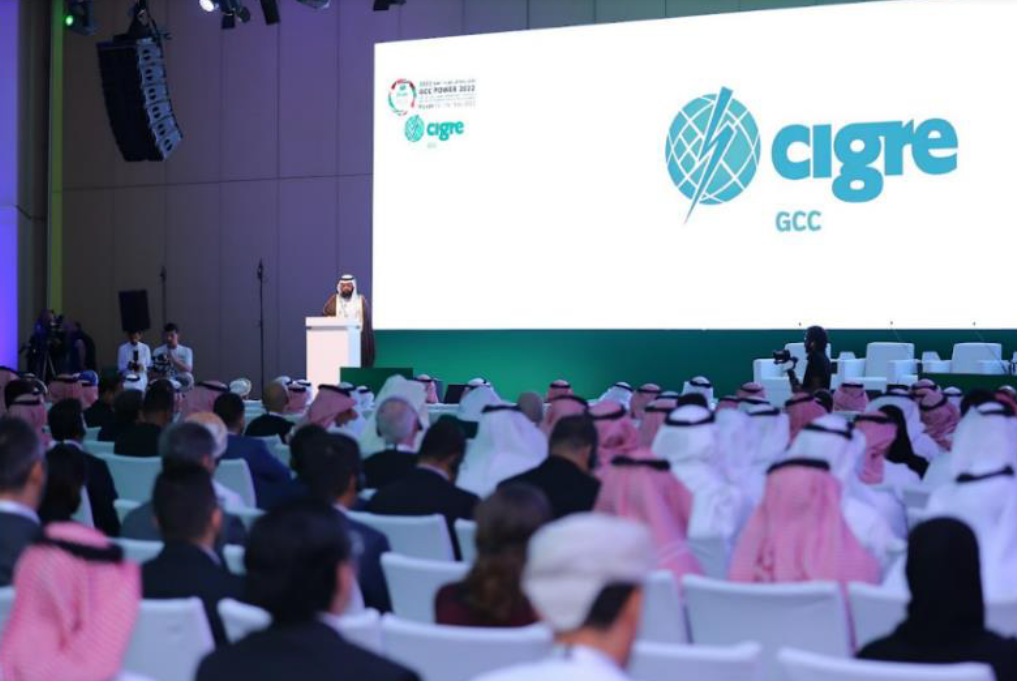
Ryadh, Saudi Arabia
14-16 November 2022
The conference opened with the opening remarks from the Ministry of Energy of Saudi Arabia, GCC Secretary General, GCC CIGRE Chairman and the CIGRE Secretary General. The CIGRE Secretary General, Mr. Philippe Adam, reiterated that CIGRE exists to facilitate the exchange of technical and scientific knowledge and experience between power system professionals around the world; today and in the coming decades, power systems will play an even more fundamental role for the well-being of humanity than in the past. Mr. Philippe further stated that, the energy transition aims to reduce carbon dioxide emissions in human activities which is a concern shared at the global level, currently reaffirmed at the COP 27 meeting in Egypt during the same time. Of all the areas of human activity, electricity production is the most advanced sector in this transition, with massive generation installations throughout the world based on renewable sources, such as solar, wind, hydro and geothermal, or on non-carbon sources such as nuclear. Solar and wind power generation is inherently intermittent and requires specific solutions to ensure a reliable supply of electricity, such as storage, demand side management, back-up generation based on dispatchable generation, and interconnection of neighbour power systems. In addition, the other sectors that emit carbon dioxide, like heating, mobility, agriculture, metallurgy, chemical, etc., will have to draw their energy from decarbonised solutions, via the electricity vector. All these evolutions will therefore rely heavily on electrical systems, which in turn will have to move to a higher level of development, involving more resources, materials for their infrastructures, and human resources to operate them and more talents to innovate. However, CIGRE will have to adapt the organisation of its technical activities, to develop its means of communication outside its community, and to include new entrants from sectors concerned by the electrification (renewable generation, heating, electrical vehicles, hydrogen economy, etc.)
Panelist's
The theme of the keynote panel session of the conference was “Challenges in the GCC Power Systems under Energy Transition” and was moderated by Dr. Lawrence Jones (Vice President, EEI) and Eng. Ahmed Ali Al-Ebrahim (CEO, GCC Interconnection Authority) and the panellists included Eng. Wilfried Breuer (Chairman of Cigre NC Germany & Managing Director MR, Germany), Eng. Ibrahim Al-Jarbou (Executive Vice President, Saudi Electricity Company) and Dr. Salem Al-Huthaili (CEO, Solar Wadi).
Tutorial
The work group B3 of GCC CIGRE Study Committee was held a tutorial entitled “Management of Risk in Substations “by Eng. Gérald Buchs (Senior Engineer HV&MV Substations, Bouygues E&S EnerTrans Ltd, Switzerland), Chaired by Eng. Abdulrahman Mohammed Ahli (Power Engineering Department Manager, TRANSCO, UAE).
The key highlights and takeaways from the session were as follows:
- Energy Transition towards cleaner energy to meet decarbonization targets will need more investments and buildout of transmission and Interconnection infrastructures, to cost effectively harness the geographically distributed renewable resources in the GCC and other parts of the world.
- Power Grids of the Future requires emphasis to develop the “Engineer of the Future”, with a broader multi-skills approach for future engineer to become more of systems thinkers.
- Engineering organizations like CIGRE should invest more time and resources communicating to broader stakeholders to enhance the collaboration needed in a holistic approach towards the “Grids of the Future”.
- Innovation for energy transition shall extend beyond the mere solutions to technical challenges, to include innovations around business models, investments, ownership and governance, markets, regulatory, and policy frameworks.
- The design and operations for “Grids of the Future” shall emphasize Resilience, Sustainability and Flexibility of the grids.
- Organizations should leverage policies and workplace environments to promote more involvement of women in engineering.
- Energy Transition will require more Long-term and Short-Term Energy Storage Systems, favoring investigating different energy storage technologies such as Hydropower storage, Geothermal, to facilitate integration of Renewable Energy.
- GCC Counties may consider alternative gases in GIS and advanced green solutions in Substations equipment towards cleaner environment.
- Grid Code in GCC need to be reviewed to accommodate the “Grids of the Future” with high penetration of renewable under energy transition, Energy Storage requirements as well as new technologies and models.
- With increasing penetration of renewable energy resources (RES) in the GCC, and more utilization of energy trading through the GCC interconnection, there is essential need for more accurate and continuous monitoring and estimation of system inertia through new technologies.
- The role and importance of Ancillary services for the stable operation of a power system with the increasing renewable penetration promotes the need to establish an Ancillary Services market in the GCC.
Best Scientific Papers
- Oil Leak Locating for LPOF HV&EHV Cable, by Eng. Amer Abdullah Alghamdi (National Grid, Saudi Arabia)
In this study an oil leakage happened on EHV cable LPOF and all the traditional methods freezing and flow meter equipment failed to locating the location of leakage. - Potentials of Pumped Hydropower Storage Technology in GCC: Case of Dayqah Dam in Oman, by Idris Al Siyabi, Hamed Al Hashmi, Hamza Al Lamki and Aiman Al Shukaili (Petroleum Development Oman, Muscat, Oman).
This study investigates the potential of the pumped hydropower energy in the Gulf countries in existing water dams. The proposal is to integrate this technology with floating photovoltaics for continues power generation. - Automated simulation study for protection coordination on transmission network, by Fuad Al Amiri, Rahul Radhakrishnan, Abhishek Kulshreshtha (Dubai Electricity and Water Authority UAE).
This paper highlights in-house developed automation process to conduct a protection coordination study using a computerized simulation software. In addition, study cases to determine whether the installed protection system is operating within optimal selectivity, sensitivity and stability are presented. - Fast frequency control to reduce intermittent behavior of RES moving toward ancillary services market in GCC, by Abdulrahman A. Al-Yamani, Milan J. Bautista (Aramco Kingdom of Saudi Arabia). This paper introduces fast frequency control services as potential solutions to reduce the intermittent behavior due to variable generation as one of the advanced technologies to encounter complex requirements that are part of today’s energy revolution.
At the closing ceremony, Mr. Philippe Adam - Secretary General of CIGRE presented the conclusions of the study carried out by the Working Group on the feasibility of a global electricity grid to optimise the development of renewable energies, as follows:
- Interconnection of national and continental grids remains the most cost-effective and efficient solution for reducing CO2 emissions by 2050, and the GCC power system is clearly seen as playing a fundamental role.
- It is therefore essential for the GCC to adapt its electricity network to this new challenge which goes far beyond its borders, and CIGRE will be there to stimulate the exchange of technical information between the stakeholders.
Mr. Philippe Adam said that the GCC National Committee is again represented in the CIGRE Steering Committee together with 15 other National Committees. The number of its members has resumed its growth, and positions it in the first half of the 61 National Committees of CIGRE.
It was announced that the CIGRE GCC Committee will host CIGRE International symposium in Muscat from 6 to 8 March 2023 which will be a unique opportunity for professionals from the region to meet and discuss with international experts from several CIGRE Study Committees, on the theme of the symposium which will be "transition to innovative, sustainable and resilient power systems".
